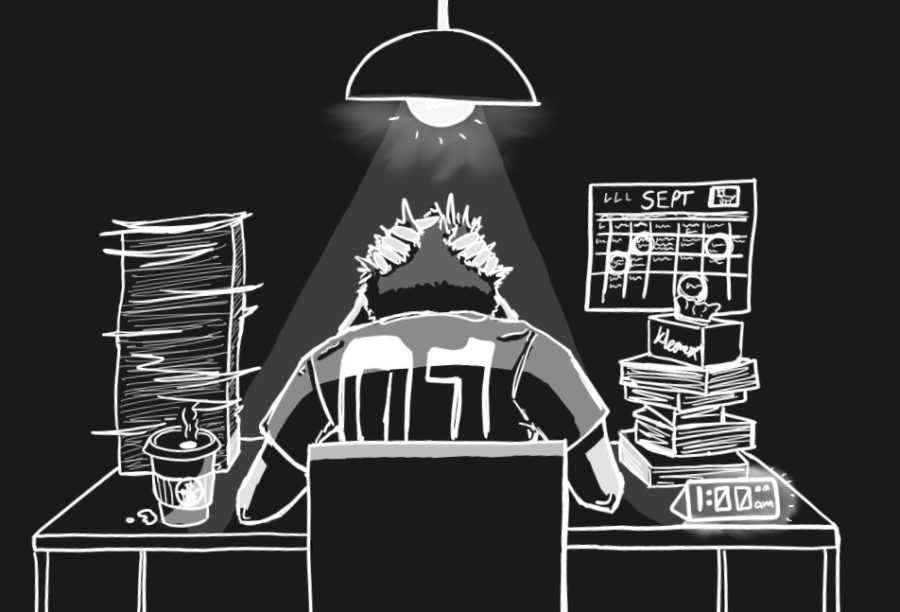Back to School: Procrastination and Stress Management Techniques
September 28, 2018
After a month into the school year, teachers are assigning homework most nights and students have to find a way to balance school and relaxation. Some students have multiple hours of work a night. The elementary school question of “Do I have homework?” transforms into “What do I absolutely need to get done tonight, and what things are not as important?” Thus begins the cycle of procrastination.
Procrastination is a habit that once one falls into, it can be hard to climb out again. Putting off one worksheet can turn into a week of being behind in a challenging class. However, there are ways to prevent oneself from falling into the habit of procrastination.
Procrastination does not only affect a student’s academic standing but also has negative effects on one’s wellness. According to Fuschia M. Sirois’ (PhD Social/Health Psychology)
study, “Lost in the Moment? An Investigation of Procrastination, Mindfulness, and Well-being”, from a sample of 339 students, a survey with univariate analysis revealed that “procrastination was associated with low mindfulness, high stress and poor perceived health.”
Mindfulness is the mental state of being aware of what’s happening around one in the present moment. Practicing mindfulness in one’s daily routine will help students be focused on their assignments and avoid procrastination. Mindfulness also helps combat the distractions facing students while accomplishing homework or working on projects.
MHS Counselor Theresa Exenberger recommends students “have a planning system in place” as well as “using the little bits of free time you have in between activities to get ahead.” She also mentioned that it is important to be looking ahead at what assignments are coming up so that one does not get overwhelmed. Ms. Exenberger recommends using a physical or digital reminder system “whether it’s a planner or using reminders on your phone.’’
Elayna Sitzman, ‘19, avoids procrastinating by “turn[ing] off [her] phone or put[ting] it in another room” while she works on homework. She also “create[s] a time schedule for herself” so that she is aware of what she needs to complete and does not get off track.”
Sitzman also avoids procrastination by “play[ing] the same song on repeat” so that she can still listen to music but be productive without distractions.
All things considered, staying on top of one’s course load and being mindful of the assignments and tests coming up can greatly help students from falling into the cycle of procrastination. If keeping up becomes too difficult, there are many resources in the school to help students such as MAST, the Writing Center and zero hour.






























